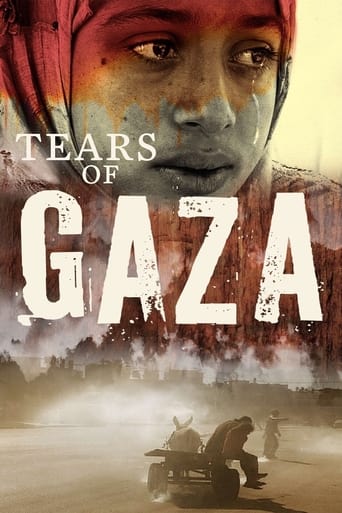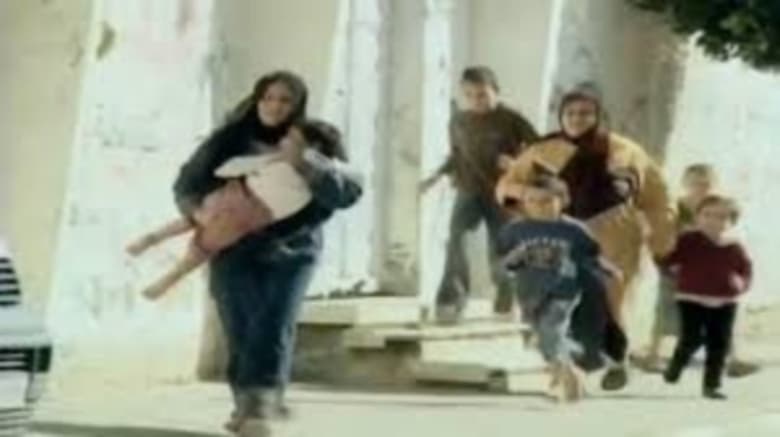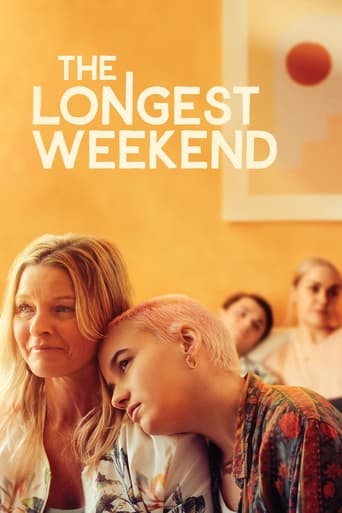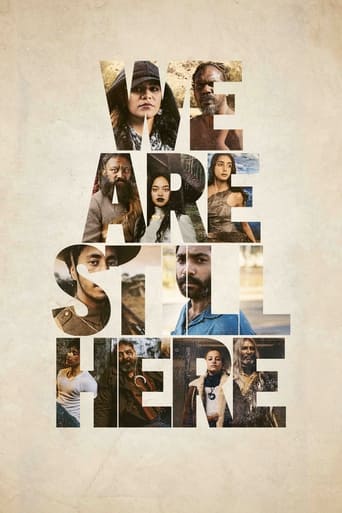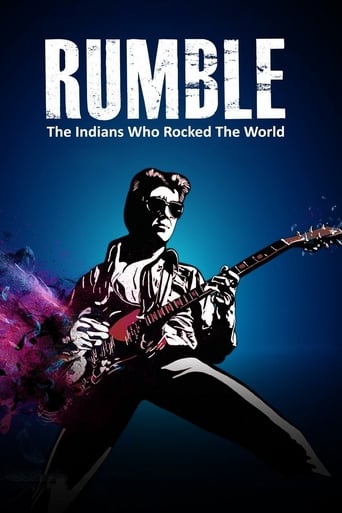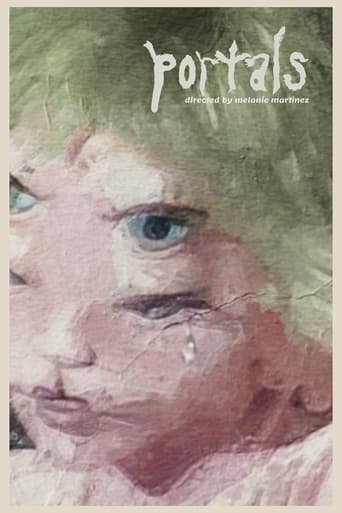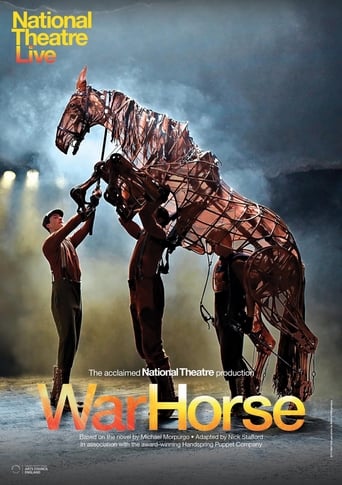Tears of Gaza (2010)
In a rough style, by way of unique footage, the brutal consequences of modern wars are exposed. The film also depicts the ability of women and children to handle their everyday life after a dramatic war experience. Many of them live in tents or in ruins without walls or roofs. They are all in need of money, food, water and electricity. Others have lost family members, or are left with seriously injured children. Can war solve conflicts or create peace? The film follows three children through the war and the period after the ceasefire.
Watch Trailer
Cast
Similar titles
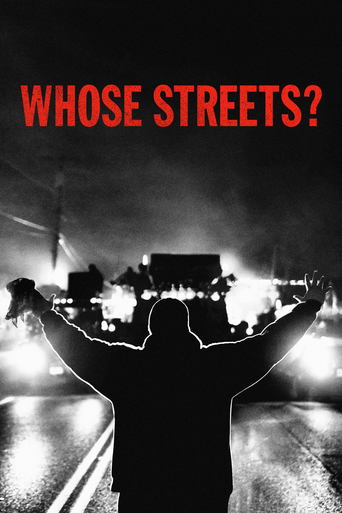
Reviews
So much average
a film so unique, intoxicating and bizarre that it not only demands another viewing, but is also forgivable as a satirical comedy where the jokes eventually take the back seat.
A great movie, one of the best of this year. There was a bit of confusion at one point in the plot, but nothing serious.
By the time the dramatic fireworks start popping off, each one feels earned.
Norwegian author, actress, screenwriter, producer and director Vibeke Løkkeberg's documentary feature which she wrote and which was made in collaboration with the people of Gaza, is inspired by her observations of children's faces on television and her perception about the population being unfairly stigmatized as terrorists. It premiered in the Reel to Reel section at the 35th Toronto International Film Festival in 2010, was shot by citizens of Gaza and is a Norwegian production which was produced by producer Terje Kristiansen. It tells the story about a fourteen-year-old girl named Amira Fat-hi Dawood El Eren, a twelve-year-old boy named Yahya Subh and an eleven-year-old girl named Rasmia Al- Sultan. Distinctly and subtly directed by Norwegian filmmaker Vibeke Løkkeberg, this quietly paced reportage which is narrated from multiple viewpoints though mostly from the point of view of three Palestinian children, draws a direct and abrupt portrayal of what the situation and conditions were like for the civilians during a war where they became the victims of the battles between terrorist groups and military forces from the state of Israel who declared their independence in 1948, the state of Palestine who declared their independence in 1988 and who both have claimed the Gaza Strip as their territory and Jerusalem as their capital city. While notable for its real milieu depictions and reverent cinematography by cinematographers Yosuf Abu Shreah, Saed Al Sabaa, Mwafag Al Khateeb and Julie Kristensen, this observational story about the people of a former British colony formerly governed by Egypt (1948-1967), Israel (1967-1994) and then under Palestine authority from 1994, an ongoing historical conflict with political and sectarian undertones and a territorial war between the two middle eastern republics and countries of Israel where most of the population are Israeli Jews and Palestine where most of the population are Sunni Muslims and Arab Christians, emphasizes its attention on the children and families, is so subjective that it risks being regarded as populism and contains a timely score by composers Lisa Gerrard and Marcello De Francici. This recurrently relevant, bilaterally atmospheric and crucially humane documentary feature from the early 2010s which is set in the early 21st century in a city called Gaza in the Levant region during the presidency of Shimon Peres in Israel, Mahmoud Abbas in Palestine and the Gaza War (2008-2009) which resulted in both Palestine and Israel casualties, which lasted for twenty-two days, and where the executioners were praying on the lives of the civilians who were sacrificed for the jurisdiction of an area, is impelled and reinforced by its cogent narrative structure, subtle continuity, multiple perspectives, commendable footage, non-political approach and scenes of the children. A bravely veracious authentication.
This film is propaganda and not objective in any respect whatsoever. It does not bring in the endless rocketing of Israel. It does not bring up the effect of Hamas on Gaza and how the Islamic terrorist organization has continually rejected peace and advocates the destruction of Israel and the wiping out of the Jewish people. When you only show bombs landing and do not show why those bombs were dropped (Islamic terrorist acts by Hamas and the other terrorists in Gaza) it simply perpetuates the antisemitism inherent in movies/documentaries of this type. To say that this film is one-sided (Muslim and Palestinian point of view) is accurate to a point: however, there is a larger and more insidious agenda here. That is to use Palestian children as pawns in a fight for survival by the Jewish people who have continually wanted to end the fighting between themselves and the so-called Palestinian people. I say so called because there never in the history of the world was a country called Palestine. There was a territory governed by Jordan, before WWII, that listed the territory as Palestine but it could have equally been called Israel as it was the exact same geographical area. Oh well, in movies one cannot expect to get an objective view and this movie stinks because it is so one sided and only highlights the plight of Palestian children but not that of the Jewish children who live in daily fear from Islamic radical terrorists coming over the border from Gaza or shooting rockets into their towns day and night for years on end. StocktonRob
Vibeke Lokkeberg's documentary "Tears of Gaza" is one of those films which rips your torso open, and leaves your heart bleeding. What the Norwegian film maker Løkkeberg does here, is something I would never expect from her. I've seen a lot of her earlier films, and besides "Løperjenten" I think they generally stunk. But I glad to say that this film shows what Løkkeberg is capable to make.The film attempts to capture the horrifying feelings the civilians experience during the 22 days long 2008-09 military assault upon Gaza by the Israeli military. Some might say this is pro-Palestinian, but that is a load of BS, because this shows that war isn't about religion or land. War is a crime against humanity, and nothing is black and white. Every war has more than one side. This is about human rights.With raw, unpolished footage with hand held camera Løkkeberg shows disturbing pictures and consequences of war at a time when journalists weren't allowed to get into the area. The situation seems hopeless, and yet still meaningful. At times you cannot help but feel certain scenes are staged, and this only hurts the film because it allows those that do not want to like the film the ability to discount it entirely. But they did come off as big proponents of human rights, and it showed as an underlying theme in Tears of Gaza. The film has highly upsetting scenes of children getting killed both by bombs and by snipers, no more than 2 or 3 years old! But then they are future opponents or terrorists, aren't they!? (Sic!)Both parties in this war, Israeli and Palestinian has committed war crimes by killing civilians. The only distinction is the wast differences of wartime capabilities of each side. Those responsible should all be put up for a war time tribunal for crimes against the human society.Though extremely difficult to watch, and not for the faint of heart, I wish to thank Vibeke Løkkeberg for the courage of showing what war is.
I saw this film at the Toronto Film Festival and was very moved by it. There's nothing happy about it, though, so be warned that it is an exhausting emotional experience that will leave you feeling somewhat angry and helpless. The likelihood of this film ever seeing a general release in the US is remote to non-existent. It's just too politically charged and will probably be viewed as anti-Israel (which I don't think it is). I'm hoping that at the very least it will be available for download on the internet or, heaven forbid, it will be released on DVD. I think this is a very important film for the general public to see because it looks at the conflict between Jews and Palestinians in very human terms. Yes, it's true that the perspective we see is that of the Palestinians, but what's wrong with that? It's called "Point of View" filmmaking. Not everything has to be a balanced piece of journalism, especially when deeply human stories are involved. Anyway, I hope you get a chance to see it.
